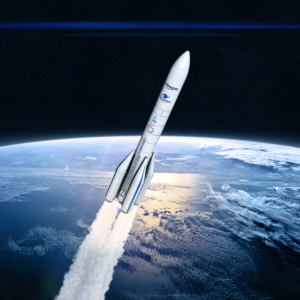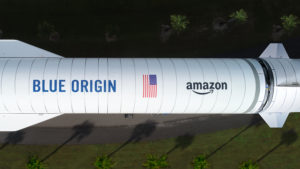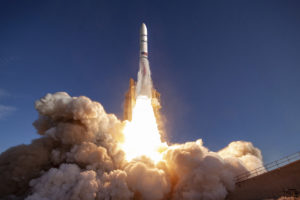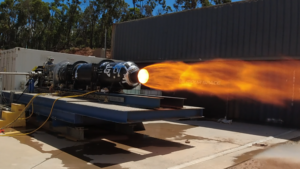Amazon (NASDAQ: AMZN) today announced contracts with three companies for up to 83 launches over a five-year period for its 3,236-satellite Project Kuiper.
“For this contract, Arianespace will rely on the Ariane 64 vehicle, the highest performing European launcher, which is perfectly tailored for the demanding work of deploying constellations,” Israel added. “Ariane 6 will enter service and replace the Ariane 5 as Arianespace’s heavy lift workhorse.”
“We’ve completed our final design review and are communicating the new date with our customers,” a spokesperson from Blue Origin told Connectivity Business News.
Kuiper will not be New Glenn’s first launch. “We have several customer commitments to fulfill prior to Kuiper launching on New Glenn,” the spokesperson said.
“We also congratulate our partner, United Launch Alliance, who was also selected today by Amazon to support Project Kuiper,” Jones said today in a statement. “We’re proud to build American-made engines for ULA’s Vulcan Centaur.”
Dispenser
Amazon today also signed a contract with Switzerland-based Beyond Gravity (formerly RUAG) to produce dispensers for Project Kuiper. The dispenser is a smart system that releases small satellites into orbit. The company will build a smart factory capable of producing one dispenser per month, Magnus Engstrom, Beyond Gravity senior sales manager, told Connectivity Business News.
“Thanks to many years of experience in the development and production of dispenser systems, including the OneWeb dispensers, Beyond Gravity was able build on this expertise and will now scale it up to automated mass production,” Engstrom added. The new factory will be fully digitized, with sensors delivering real-time data for quality control.
This is the single largest contract in the company’s history and will create 60 jobs in Sweden, according to the release.
SpaceX
While Amazon announced no agreements with Elon Musk’s SpaceX, Astranis, a geostationary Earth orbit small satellite telecommunications provider, today announced it has signed a contract with SpaceX for a single dedicated Falcon 9 to launch four MicroGEO satellites in 2023.
“Buying an entire dedicated launch is a huge de-risker for us,” said John Gedmark, Astranis CEO and co-founder, in a statement today. “We’re able to control our own destiny here, from a scheduling standpoint. We’re also getting an impressive amount of extra performance, getting us closer to our intended orbit and delivering service to our customers much sooner.”
Gilmour
“We don’t have a more exact launch date than Q4 2024 at this stage,” Michelle Gilmour, director of marketing and communications, told Connectivity Business News.
The government of Australia announced March 25 the award of $39 million to support the $118 million Australian Space Manufacturing Network. The network’s projects include the Bowen Orbital Spaceport as well as Gilmour’s partnership with industry and academia to “create a manufacturing and test hub and an advanced manufacturing facility to produce launch vehicles and satellites,” according to the government’s release.
“The magic of Gilmour is in their hybrid engine approach, which has long held promise but with the rapid advances in things like 3D printing is now possible on the timelines and capital constraints of venture [capital],” Niki Scevak, Blackbird Ventures partner, an investor in Gilmour, told Connectivity Business News last year. “Hybrid engines allow the number of moving parts in a rocket to be hundreds of times less, offering simplicity and huge cost savings.”













